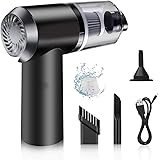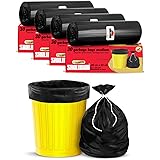Why Buy Vinyl Records?
Vinyl records have experienced a remarkable resurgence in popularity in recent years. Many music enthusiasts have rediscovered the warm, rich sound and the tangible experience of playing vinyl. Owning a physical record collection can also be a source of pride and a way to support your favorite artists. Whether you’re a seasoned vinyl collector or new to the format, buying Vinyl records without breaking the bank is possible with a little knowledge and strategy.
Vinyl records offer several advantages over digital formats:
- Superior Sound Quality: Vinyl records are renowned for their warm, natural sound, which many audiophiles believe to be superior to digital formats like CDs or streaming.
- Tangible Experience: Handling and playing a physical record adds a tactile and immersive element to the music listening experience that digital formats cannot replicate.
- Artwork and Packaging: Vinyl records often come with larger, more detailed album artwork and packaging, which can be appreciated as a form of art.
- Collectability: Vinyl records can be valuable collector’s items, especially rare or limited-edition releases, making them an investment for some music enthusiasts.
Where to Buy Vinyl Records
When it comes to purchasing vinyl records, you have several options to consider, each with its own advantages and disadvantages. Let’s explore the different avenues for buying vinyl records:
1. Buying Vinyl Records Online
Shopping for vinyl records online offers several benefits, including a wider selection, competitive pricing, and the convenience of shopping from the comfort of your own home. Some popular online marketplaces and retailers for vinyl records include:
- Online Marketplaces: Websites like Amazon, eBay, and Discogs offer a vast selection of new and used vinyl records, often at discounted prices.
- Dedicated Vinyl Retailers: Specialty online stores like Vinyl Me, Please, Turntable Lab, and Rough Trade offer curated collections of high-quality vinyl releases.
- Record Label Websites: Many record labels sell their artists’ vinyl releases directly through their own websites, often with exclusive or limited-edition versions.
2. Buying Vinyl Records in Physical Stores
While online shopping has its advantages, visiting physical record stores can be a rewarding experience. Local independent record stores and used record shops often have a unique selection and a more personal, hands-on shopping experience. Some benefits of buying vinyl records in physical stores include:
- Browsing and Discovery: Physically browsing through record bins can lead to serendipitous discoveries and introduce you to new artists or genres you may not have found online.
- Supporting Local Businesses: Purchasing vinyl records from independent record stores helps to support your local music community and preserve these important cultural hubs.
- Personalized Recommendations: The knowledgeable staff at physical record stores can often provide valuable recommendations and insights based on your musical preferences.
Buying Vinyl Records Online
When shopping for buying vinyl records online, there are several strategies to ensure you get the best quality and value for your money:
- Research Seller Reputation: Check the seller’s ratings, reviews, and feedback to ensure they have a history of providing high-quality products and excellent customer service.
- Understand Grading and Condition: Familiarize yourself with the standard grading system for used vinyl records, which ranges from “Mint” to “Poor.” This will help you determine the condition of the record and its corresponding value.
- Inspect Photos Carefully: Closely examine the photos provided by the seller, looking for any signs of wear, warping, or damage to the record and its packaging.
- Ask Questions: Don’t hesitate to reach out to the seller with any questions or concerns you may have about the record’s condition, pressing, or other details.
- Consider Shipping and Handling: Factor in the cost of shipping and handling when comparing prices, as this can significantly impact the overall value of your purchase.
Buying Vinyl Records in Physical Stores
Purchasing vinyl records from local record stores can be a more tactile and rewarding experience, but it also requires a different approach to ensure you find the best deals and quality:
- Explore Independent Record Stores: Seek out independent, locally-owned record stores, as they often have a more curated selection and knowledgeable staff who can provide valuable recommendations.
- Check Used Record Bins: Used record bins can be a goldmine for finding rare, out-of-print, or undervalued vinyl releases at discounted prices. Carefully inspect each record before making a purchase.
- Attend Record Fairs and Conventions: These events often attract a wide range of vendors and collectors, providing an opportunity to find unique and hard-to-find vinyl records.
- Build Relationships with Store Owners: Developing a rapport with the staff at your local record stores can lead to exclusive deals, early access to new releases, or even personalized recommendations based on your musical tastes.
- Negotiate Prices: Don’t be afraid to negotiate prices, especially for used or damaged records. Store owners may be willing to offer discounts to make a sale.
How to Determine the Quality of a Vinyl Record
Regardless of where you purchase your vinyl records, it’s essential to inspect the quality and condition of each record to ensure you’re getting the best value for your money. Here are some tips for evaluating the quality of a vinyl record:
- Visual Inspection: Carefully examine the record’s surface for any visible scratches, scuffs, or other signs of wear. Also, check the label and packaging for any damage or defects.
- Auditory Inspection: If possible, listen to a sample of the record to assess the sound quality. Listen for any pops, crackles, or other unwanted noise that could indicate a problem with the pressing or previous handling.
- Grading System: Familiarize yourself with the standard grading system for used vinyl records, which includes grades like “Mint,” “Near Mint,” “Excellent,” “Very Good,” “Good,” and “Poor.” This will help you determine the appropriate value for the record’s condition.
- Consider Reissues: Newer reissues of classic albums can often provide a more affordable and higher-quality alternative to original pressings, which may be more expensive and harder to find.
- Research the Pressing: Investigate the specific pressing of the record, as different pressings can vary in quality and value. Factors like the pressing plant, year of release, and limited-edition status can all impact the record’s quality and price.
Conclusion
Buying vinyl records without breaking the bank is entirely possible with the right strategies and a little bit of patience. Whether you choose to shop online or visit your local record store, the key is to thoroughly research, inspect, and negotiate to ensure you get the best value for your money.
Remember, the joy of vinyl collecting is not just about the music, but also the tangible experience and the thrill of the hunt. By following the tips outlined in this article, you can build an impressive vinyl collection that will provide years of listening pleasure without draining your bank account.
Boldfit Tumbler Bottle Water Bottle with Lid and Straw 1.2L Stainless Steel Double Insulated Tumblers for Hot & Cold Drink 100% Leakproof Tumbler with Handle & Reusable Straw Sipper with Brush 1200ml
₹1,299.00 (as of 27 December, 2024 11:25 GMT +05:30 - More infoProduct prices and availability are accurate as of the date/time indicated and are subject to change. Any price and availability information displayed on [relevant Amazon Site(s), as applicable] at the time of purchase will apply to the purchase of this product.)SHAYONAM 3IN1 Portable Car Vacuum Cleaner with Blower | USB Rechargeable Wireless Handheld Car Vacuum Cleaner Traveling,Portable,Rechargeable (Vacuum with Blower)(Multy)/*-
₹699.00 (as of 27 December, 2024 11:25 GMT +05:30 - More infoProduct prices and availability are accurate as of the date/time indicated and are subject to change. Any price and availability information displayed on [relevant Amazon Site(s), as applicable] at the time of purchase will apply to the purchase of this product.)Amazon Brand - Presto! Garbage Bags Large 90 Count|24 x 32 Inches Black , For Dry & Wet waste|15 bags/roll (Pack of 6)
₹325.00 (as of 27 December, 2024 11:24 GMT +05:30 - More infoProduct prices and availability are accurate as of the date/time indicated and are subject to change. Any price and availability information displayed on [relevant Amazon Site(s), as applicable] at the time of purchase will apply to the purchase of this product.)2 Pcs Kitchen Mats, Waterproof Memory Foam Kitchen Rugs, Standing Desk Mat Floor Mats, Comfort Runner Rug Carpets for Kitchen Floor, Sink (c)
₹548.00 (as of 27 December, 2024 11:25 GMT +05:30 - More infoProduct prices and availability are accurate as of the date/time indicated and are subject to change. Any price and availability information displayed on [relevant Amazon Site(s), as applicable] at the time of purchase will apply to the purchase of this product.)Shalimar Premium Garbage Bags (Medium) Size 19 X 21 Inches 4 Rolls Plastic Dustbin Bag/Trash Bag, 120 Count, Black Color
₹299.00 (as of 27 December, 2024 11:24 GMT +05:30 - More infoProduct prices and availability are accurate as of the date/time indicated and are subject to change. Any price and availability information displayed on [relevant Amazon Site(s), as applicable] at the time of purchase will apply to the purchase of this product.)Discover more from The General Post
Subscribe to get the latest posts sent to your email.





